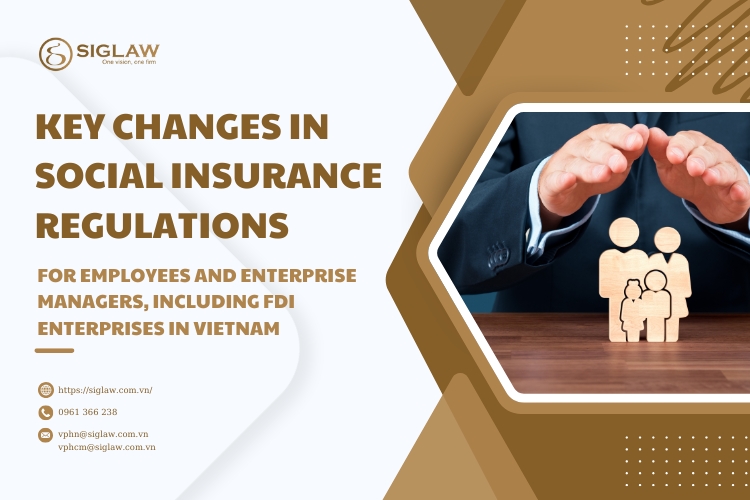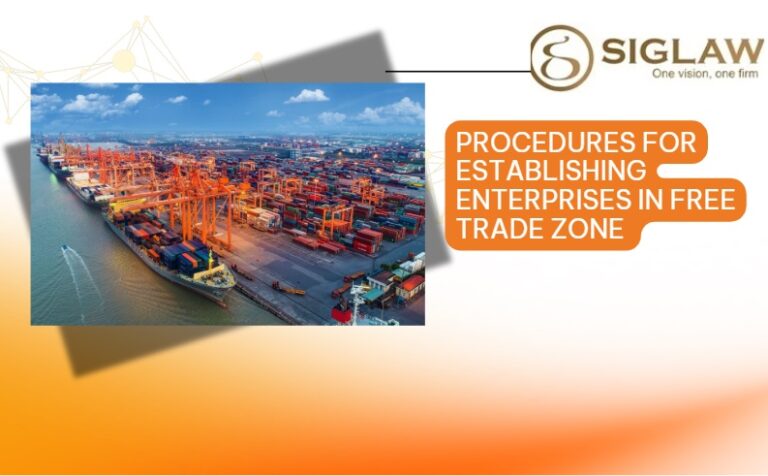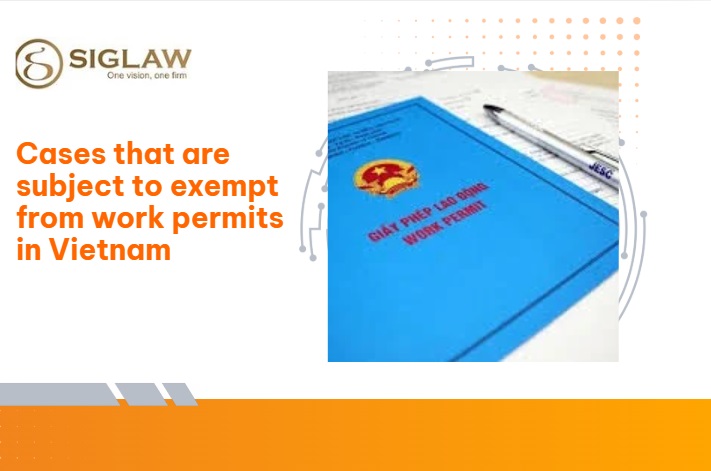Starting from July 1, 2025, the new provisions of the Law on Social Insurance 2024 will officially take effect, introducing significant changes to the social insurance (SI) contribution policies applicable to employees and enterprise managers, including those working in foreign-invested enterprises (FDI) in Vietnam.
Under the new regulations, the scope of mandatory social insurance (SI) coverage has been expanded to include a wider range of individuals, as follows
– Vietnamese employees working under employment contracts with a duration of at least one month, including cases where the parties use different contract titles but the content demonstrates an employment relationship involving work, remuneration, and supervision or management by one party (Point a, Clause 1, Article 2 of the Law on Social Insurance 2024);
– Foreign employees working in Vietnam under a fixed-term labor contract of at least 12 months with a Vietnamese employer, except for the following cases:
+ Those transferred within an enterprise in accordance with regulations on foreign employees working in Vietnam;
+ Those who, at the time of signing the labor contract, have already reached retirement age as prescribed in Clause 2, Article 169 of the Labor Code;
+ Cases where international treaties to which the Socialist Republic of Vietnam is a signatory provide otherwise (Clause 2, Article 2 of the Law on Social Insurance 2024);
– Enterprise managers, controllers, representatives of State capital, and representatives of enterprise capital under the law; members of the Board of Directors, General Directors, Directors, members of the Supervisory Board or controllers, and other elected managerial positions in cooperatives or unions of cooperatives receiving salaries (Point i, Clause 1, Article 2 of the Law on Social Insurance 2024);
– The same group as above but not receiving salaries (Point n, Clause 1, Article 2 of the Law on Social Insurance 2024);
– Employers subject to mandatory social insurance include enterprises and individuals that hire or use employees under labor contracts.
Accordingly, the application scope has been broadened beyond ordinary employees, now encompassing managers, executives, and controllers — whether salaried or unsalaried — in both domestic enterprises and foreign-invested enterprises (FDIs), including Directors, General Directors, Board Members, and Legal Representatives.

Key Assessment
The new provisions under the 2024 Law on Social Insurance bring about significant positive impacts in strengthening the protection of employees’ rights, particularly for enterprise managers and employees working under short-term contracts. The expansion of compulsory social insurance coverage helps ensure fairness and transparency, while also reducing the risk of evasion through contracts disguised under different names.
However, these changes also introduce greater demands on human resource management, cost control, and regulatory compliance, especially for foreign-invested enterprises (FDIs) with complex personnel structures and multi-tiered payroll systems. As the scope of participants required to pay social insurance contributions expands, the total cost of social insurance contributions for enterprises will significantly increase, directly affecting profit margins and competitiveness. This is particularly noteworthy for enterprises employing a large number of seasonal or short-term workers, or those with multiple managerial positions previously not subject to social insurance contributions. Companies should therefore conduct a comprehensive review of their organizational and salary structures to proactively adapt to the new legal requirements.
Notes for Enterprises
Enterprises should review their salary scales and labor contracts, particularly short-term contracts and remuneration policies for managerial positions, to ensure compliance with the expanded scope of compulsory social insurance participants. It may be necessary to develop new labor contract templates that reflect the requirements of the 2024 Law on Social Insurance. Such proactive preparation helps prevent legal risks and avoid unnecessary additional costs.
Companies must also update their procedures for declaring, contributing, and settling social insurance payments in accordance with the new regulations.
Finally, it is strongly recommended that enterprises regularly consult professional legal and investment advisors to ensure full compliance and minimize the risk of regulatory violations.
SIGLAW – Accompanying Enterprises in Complying with the New Social Insurance Regulations
With a team of experienced lawyers and legal specialists in labor, social insurance, and investment law, Siglaw Firm is a trusted legal partner for hundreds of domestic and foreign enterprises, particularly FDI companies. Siglaw’s services include:
– Comprehensive consultation on the new provisions of the 2024 Law on Social Insurance, with continuous updates on the latest implementing guidelines;
– Reviewing and revising labor contracts, salary scales, and internal regulations to ensure full compliance with new legal requirements;
– Assisting enterprises in resolving issues that arise during interactions with competent state authorities;
– Advising on legal risk prevention and human resource cost optimization solutions to ensure efficient and lawful operations.









